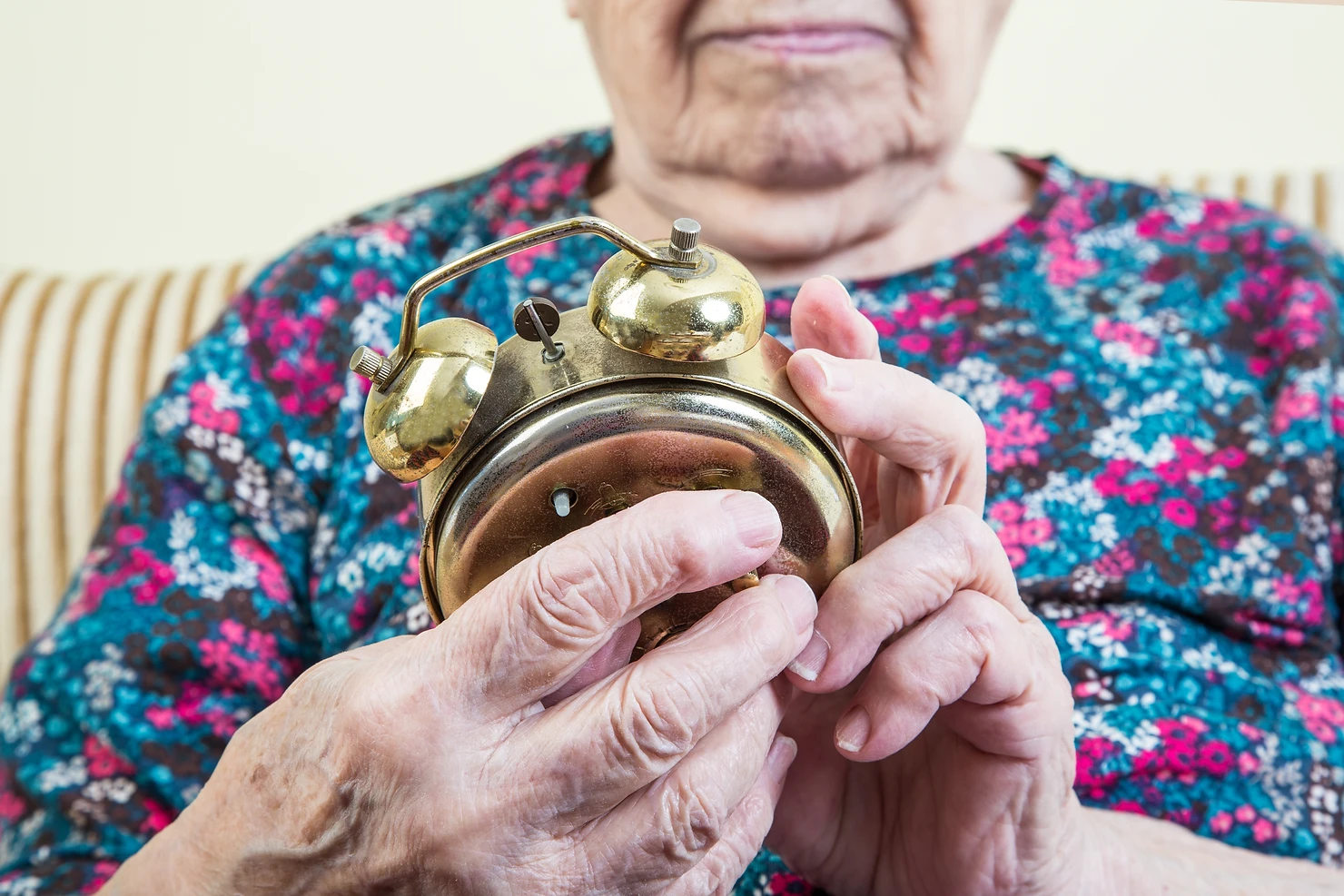Daylight savings also poses an increased risk for heart attacks, according to a 2008 study. The study shows that heart attack rates increase by about 5% in the week after the November time change, and again in the week after the time change in March. Similarly, numbers for depression and anxiety increase in seniors shortly after the time change.

Daylight savings pose a risk to seniors’ safety and mental health. Here are a few ways for seniors to safely adjust to the time change successfully through November.
1. Sleep consistently
Sleep patterns are critical to health and wellness this time of year, so be sure to avoid waking up and going to bed without a routine. A good rule of thumb is to wake up and go to bed at the same time every day
2. Only use the bedroom for sleeping
Seniors should avoid eating, reading, and watching tv in bed since these distractions can create problems when it’s time to fall asleep. The bedroom should only be used for sleeping. Take care to ensure that it’s cool, dark, and quiet enough to sleep comfortably.
3. Avoid alcohol and caffeine
This time of year, alcohol and caffeine should be avoided since they disrupt sleep. When seniors have trouble sleeping, the mental fog it creates the next morning puts them at a higher risk of falling or sustaining an injury.
4. Spend time outside and exercise
Not only is exercise crucial for fall prevention, but it can also help with the symptoms of seasonal depression. Similarly, being outside in natural sunlight helps our bodies regulate natural rhythms and promote balance in the mind and body. Cardiovascular exercise, like jogging and swimming, can help seniors fall asleep easier, too.
5. Don’t take naps
With the sun going down at 5 PM, naps are always calling. Try to avoid naps at all costs, though! Being tired helps seniors to fall asleep and stay asleep at night. If you must nap, try to keep it under 20 minutes.
For more helpful information for seniors and caretakers, be sure to check out our blog for more tips and articles on senior health and safety.